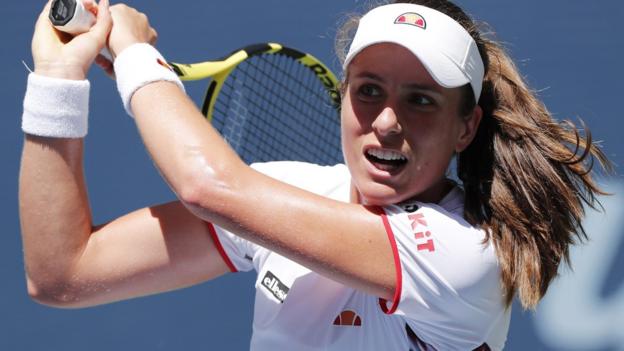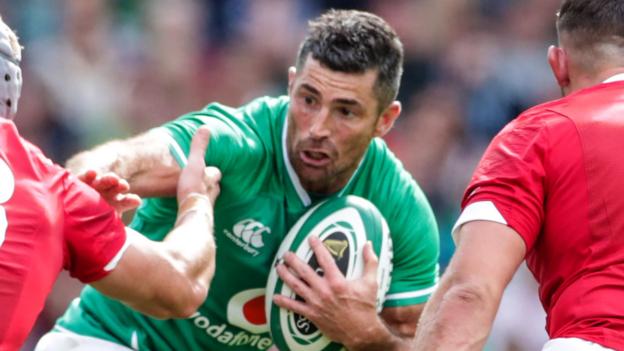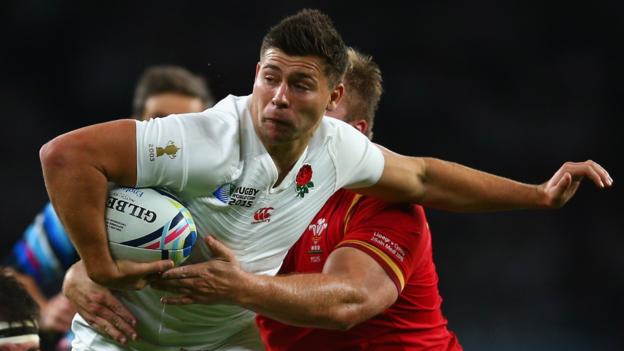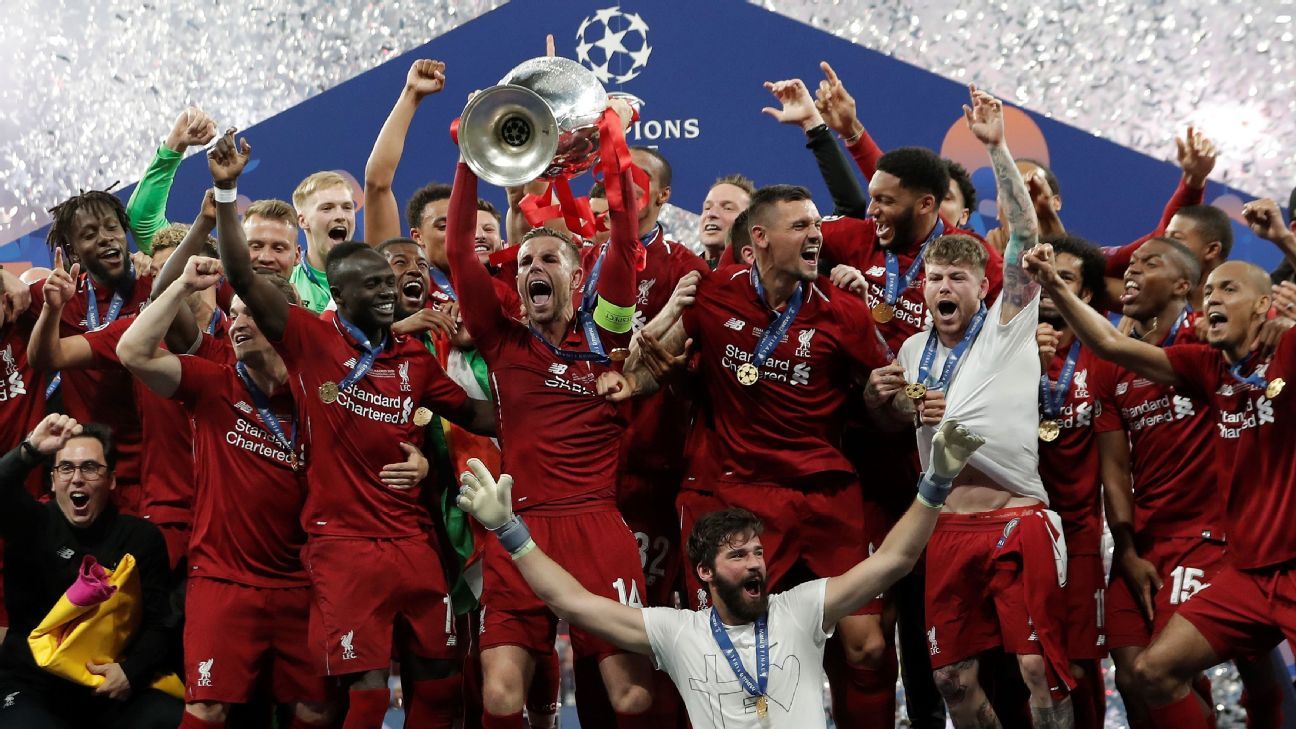For the past decade or so, every single Champions League campaign has begun with a kind of unspoken agreement among everyone watching. We tune into the qualification playoffs as if the fourth-best team from Italy or England could actually make some noise come the knockout rounds. We watch the group stage draw to see who ended up in the Impossible Group and to complain about whatever other group Manchester City inevitably receive. We watch the group stages themselves to figure out whether this was the year Napoli, or Porto, or Arsenal, could finally put a real scare into one of the contenders.
But deep down, we all knew that either Barcelona, Bayern Munich or Real Madrid were going to win and for the most part, and we were right.
In the 10 editions of the tournament before 2018-19, that trio of teams won 80% of the European Cups. Bayern nabbed one, Barca won three and Madrid took home four. Perhaps more incredibly, one of those three teams were in every final and in the years where Bayern, Barca and Madrid didn't win, it required either a historic outlier or a literal volcanic eruption to prevent them from doing so. The title changed each year, but the natural order of things was for either Bayern, or Barcelona, or Real Madrid to be the best team in the world.
However, that all changed last year.
Madrid, the three-time defending champs, got uppercut into outer space by Ajax in the round of 16 while the eventual winners, Liverpool, took out Bayern in the same round and then Barca in the semis. Liverpool's victory marked the first time since 2012 that someone outside of the Bayern-Barca-Madrid triumvirate lifted the European Cup. And the final itself, with Tottenham finishing runner-up, marked the first time that none of the three continental superpowers appeared in the final since 2008, which, coincidentally, was also an all-English matchup between Manchester United and Chelsea.
- ESPN Champions League fantasy: Sign up now!
- Ultimate XI: Our team would win everything
- Schoenfeld: Romelu Lukaku is on a mission
- Ogden: Why English clubs are happy with CL draw
Liverpool have now been to back-to-back finals, imposing their own kind of short-term dominance over the world's premier club competition. Except, as they've done so, they've only been the second best back home. Manchester City have established themselves as the best Premier League team of all time and the most consistent club in the world right now. If Liverpool are the best team in Europe, then City are the best team on the planet, which raises the question: How many teams realistically have a shot at the Champions League this season?
Europe's old Big Three is dead. The only one preventing Liverpool and City from turning it into a Big Two is the greatest soccer player we've ever seen. This season, City will win their first title, Lionel Messi will snag his fifth Champions League trophy or Liverpool will take home their second European Cup in a row.
Here's why anything else will be a surprise.
Just how good are Man City? On the one hand, it's hard to say. They've put together the two highest point totals in English soccer history in consecutive seasons, but they've also been dumped out of the Champions League in the quarterfinals in consecutive seasons, losing both times to English sides they dominated domestically that same year. On the other hand, it's not that hard: stunning loss to Norwich aside, they're freaking great.
According to data from the website Sports Odds History that goes back to 2010, the only teams who were bigger favorites to win the Champions League at this point in the season were Pep Guardiola's Barcelona teams, Tito Vilanova's Barcelona team that had 100 points in La Liga and Luis Enrique's Barcelona teams with Messi, Luis Suarez and Neymar. (City's current odds are +320, which is an implied probability of about 24%.)
In other words, people with actual money on the line have as much faith in City as they did in a handful of the best teams of the sport's modern era.
If Guardiola has turned City into the new Barcelona, then Liverpool and Barcelona are the, uh, new Real Madrid and Bayern Munich. According to the same data from Sports Odds History, the collective odds of this year's top three (City, Liverpool and Barcelona) are roughly the same as they were for the peak Barca-Bayern-Madrid seasons. In fact, Liverpool's and Barcelona's odds of winning it all this season (both +550, or around 15%) are the same as they were for Madrid in 2013-14 and Barcelona the following year. Spoiler: Both of those teams won the Champions League.
The lasting memory of the Liverpool-Barcelona matchup in last season's semis is, of course, the fact that Liverpool won the second leg 4-0 to win the tie 4-3. It marked the second year in a row that Barcelona had blown a massive second-leg lead and it seemed to suggest that there was something intangibly right with Liverpool -- a team capable of an incredible, emotional collective comeback -- and something intangibly wrong with Barcelona -- why couldn't they just, you know, not give up four goals?
In reality, the totality of the two legs suggested that the teams were pretty much even. Liverpool were unfortunate to lose the first game by three and Barca were unfortunate to lose the second one by four: neither performance was as lopsided as the scoreline looked. If Ousmane Dembele doesn't miss a tap-in at the end of the first game, or if Alisson doesn't make a number of key saves at Anfield, the conversation around both teams is very different. These are tiny margins.
As their volatile early-season performances in La Liga have suggested, Barcelona's place within this top three is almost totally dependent on the presence of Messi. He hasn't played a game yet this season and isn't expected to be fit for Barca's European opener against Borussia Dortmund this week. In his absence, Barcelona have blown out Valencia and Real Betis, but they've also drawn Osasuna and lost to Athletic Bilbao.
While Messi has aged into his 30s, the team has improbably become more reliant on their Argentinean superstar. And in Europe, that's fine. In the Champions League knockout stages, tactics and systems often go out the window and games get decided by individual moments. The best way to exploit that systemic difference? Employ the best individual player there ever was. Messi shattered Europe's best defense in the first leg of the Liverpool tie and created more than enough high-quality chances to put the second leg out of reach. As long as he's still playing and is still impervious to the progression of time, Barcelona will remain among the favorites.
As for Liverpool, their success seems a little less fragile. Since the start of 2018, they've given up the fewest goals per game in domestic play (0.67) of any team in Europe's Big Five leagues. They've also scored the fifth-most goals per game (2.33). City, who are third in goals scored (2.60) and third in goals allowed (0.70), are the only other team with an attack and a defense in the top five.
Thanks to savvy player acquisition and manager Jurgen Klopp, who actively makes his players better, they've built a squad with top-end talent everywhere except the midfield. There's not one injury that would really torpedo their chances of a seventh European Cup. The loss of Virgil van Dijk would certainly complicate things, but they'd still be left with the electric front three of Mohamed Salah, Roberto Firmino, and Sadio Mane, elite set-piece execution, a world-class goalkeeper and perhaps the best fullback pairing in Europe.
If you're wondering why the defending champs -- who finished second the year before, just rattled off 97 points in the Premier League and are currently five-for-five in the 2019-20 campaign -- aren't the favorites, here's why: They ran quite hot last season, racking up a goal differential of plus-67 on an expected-goals total of plus-45.3. Despite just one point separating the two teams in the table, City's underlying performances were significantly better.
In fact, City became the first team to reach 100 points in a Premier League season and their xG differential actually improved the following season. While City have spent billions in the transfer market, none of the moves break into the top 20 most expensive injuries of all time. Instead, they've shared the wealth and now have a squad filled with multiple world-class players at just about every position. Kevin de Bruyne can miss almost a full year, and they don't even miss a beat.
The paths for City, Barcelona and Liverpool to win it all are pretty clear. For City: keep playing how you've been playing and stop missing penalties and/or getting undone by VAR. For Barcelona: keep Messi healthy and don't give into a historic capitulation for the third year in a row. For Liverpool: do exactly what you guys did last year.
For every other team, the stories are a bit more complicated.
Bayern Munich, Real Madrid, Atletico Madrid, Juventus and Paris Saint-Germain all have worse odds to win it all than they did at this point last year. Bayern, who have the second-best goal differential after City since the start of 2018, seem like the team best-positioned to turn that top three into a top four, but they got thumped at home by Liverpool last year, so they remain a question until they actually take down one of the elite teams.
Madrid remain totally unpredictable in Zinedine Zidane's second term; we'll see if the Champions League magic still exists this time around. For Atletico, Diego Simeone's strategy against the top teams is to just turn the matches into a coin flip. Juventus have one of the oldest rosters in the world, and they've been less-than-dominant for all of 2019. PSG have most of the talent in the world, but come on. Until they sort out the Neymar situation and actually advance beyond the round of 16, projecting them to win the Champions League will require a breadth of imagination that I personally do not possess.
Sure, all of these teams could become the European champs, but none of them are likely to. Instead, it's probably going to be City, it might be Liverpool and it could be Barcelona. This isn't to say that they're all going to go deep into the competition. In fact, one of the three will probably get upset early on in the knockout stages; that's just the nature of two-legged, knockout soccer. But as the past 10 years have shown, the problem with getting by one of the favorites is that you still have to outlast the other two.

























 Phone: (800) 737. 6040
Phone: (800) 737. 6040 Fax: (800) 825 5558
Fax: (800) 825 5558 Website:
Website:  Email:
Email: 






